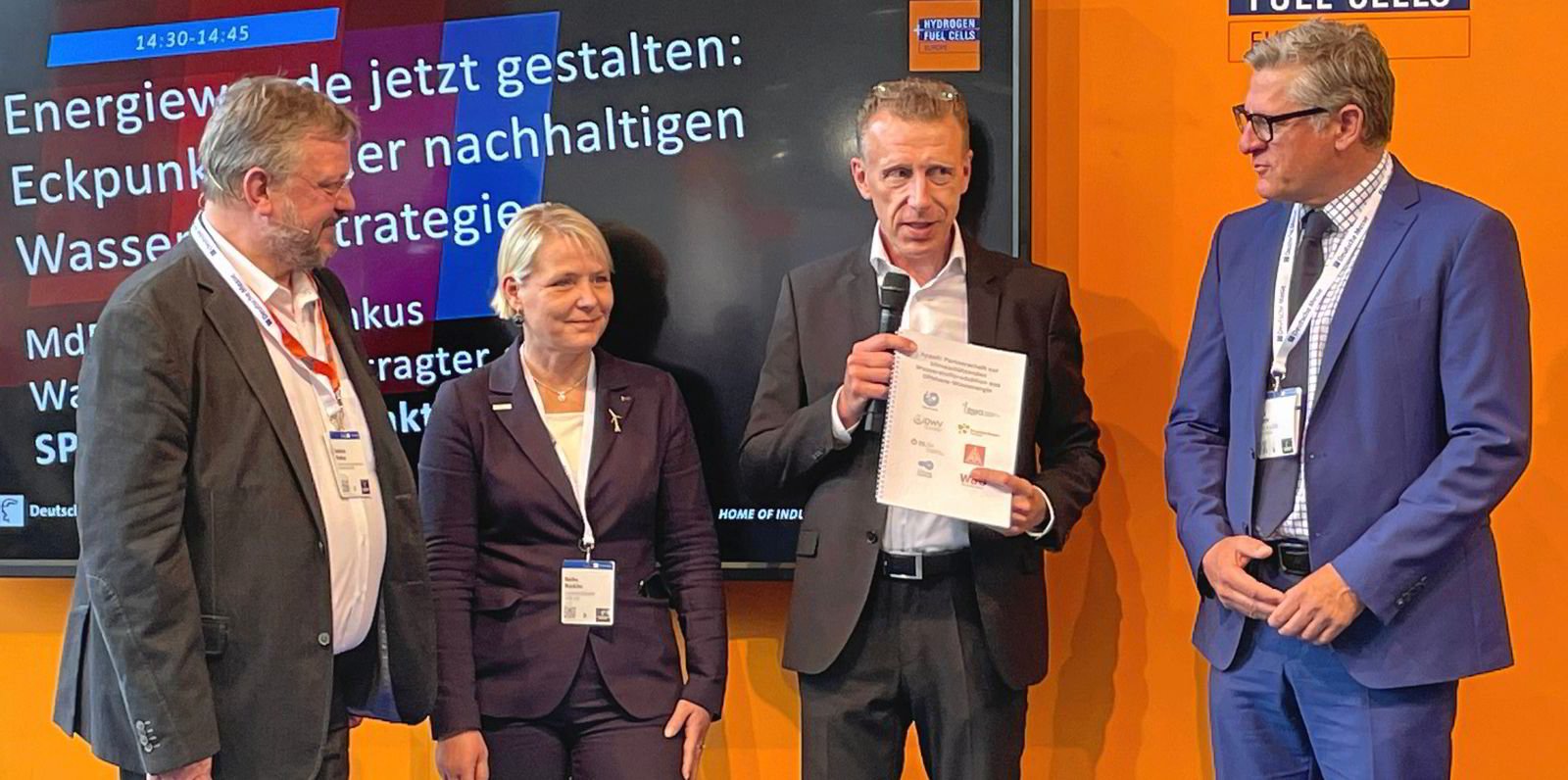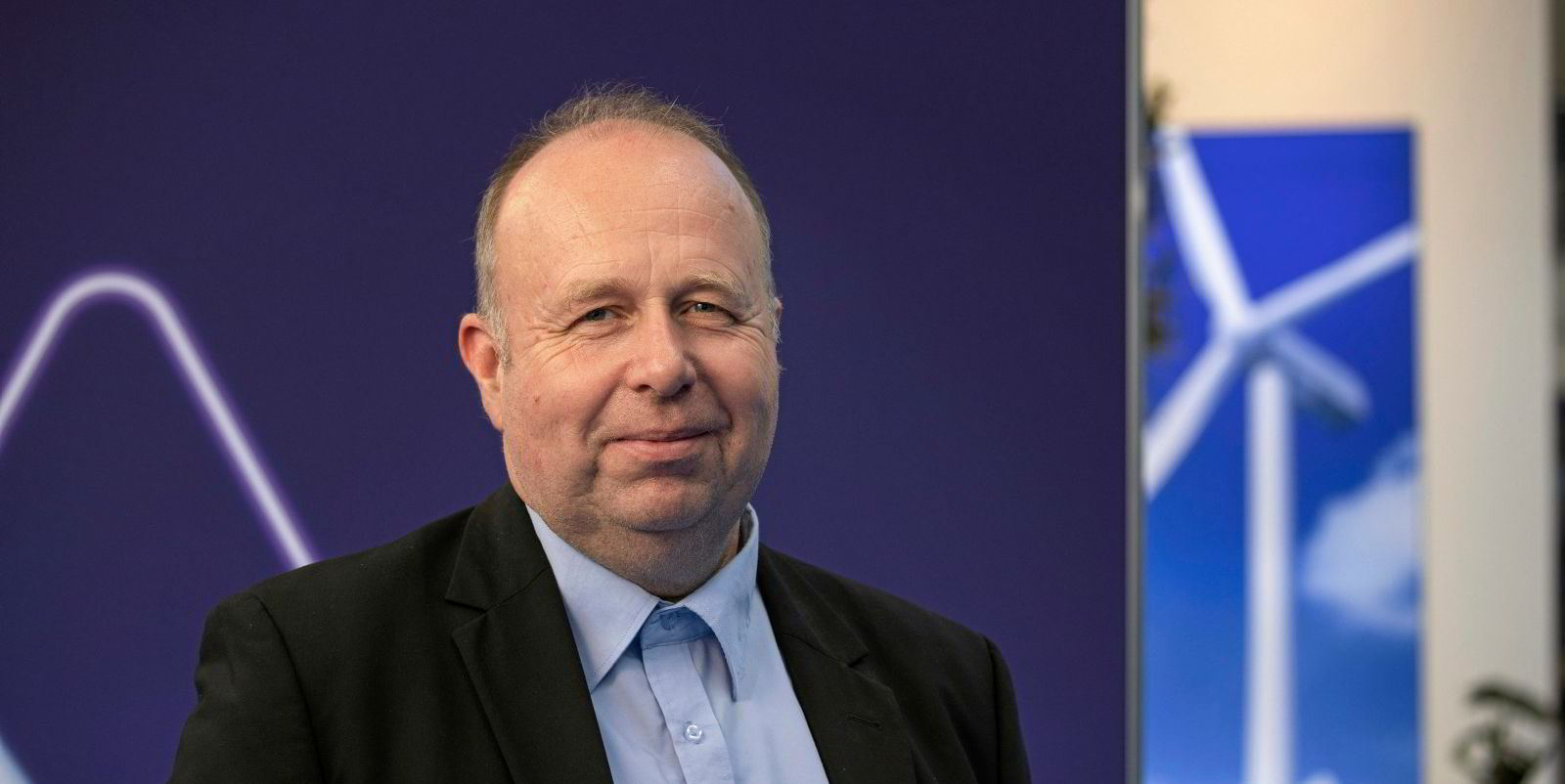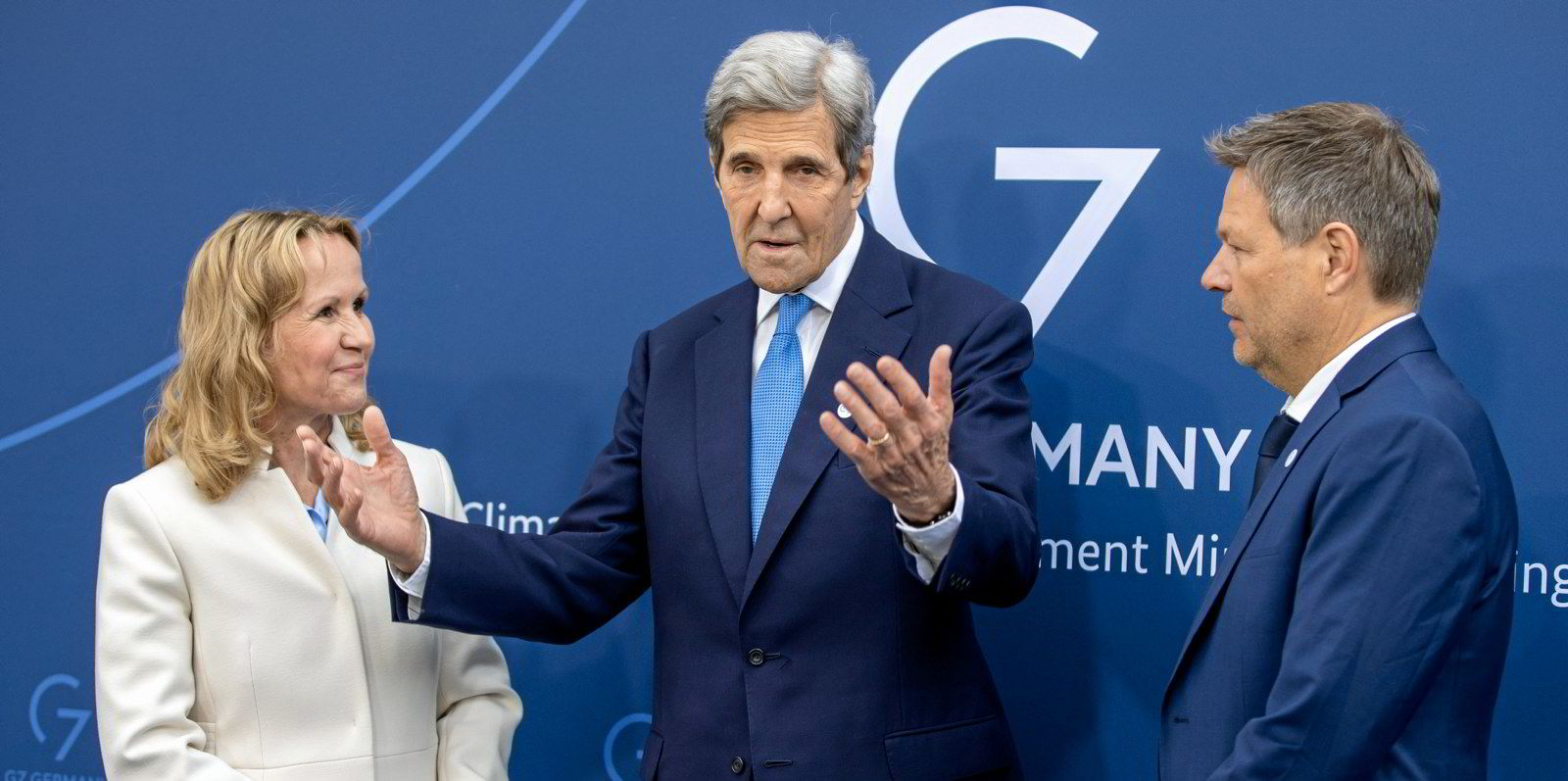Seven German wind, renewables, and hydrogen associations have teamed up with the powerful metal workers union IG Metall to demand a faster ramp-up of the production of green H2 at sea, hydrogen tenders already next year, and dedicated hydrogen pipelines in the North Sea.
The northern German groups tied up as ‘Offshore-Wind-H2-Achter’ in a six-step appeal push for a so-called ‘sprinter programme’ for offshore-wind-to-hydrogen to avoid that Germany misses out on international developments.
“Hydrogen production at sea in the German exclusive economic zone offers great opportunities for the expansion of electrolysis capacity for the goals of the national and European hydrogen strategy and for offshore wind energy development in Germany if it is made possible on economic terms,” the eight organisations said in their joint paper.
Essential for the ramp-up of a green hydrogen economy is a cross-border cooperation with European neighbours, the groups added.
Also, Jan Rispens, managing director of the Hamburg Renewable Energy Cluster, at a seminar on the appeal stressed that while Germany will also need to import green hydrogen, the country at the same time should develop new technologies in the hydrogen sector that have a potential for export.
He added that although green hydrogen likely can be produced more cheaply in other world regions such as Saudi Arabia or Australia, infrastructure such as pipelines, ports, terminals or shipping must be factored in.
“Many studies that take these costs into account show that the difference between domestically produced hydrogen and H2 from far away is no longer so great,” Rispens said.
“The cost difference will not matter much.”
1
Germany should make a target binding in its wind at sea law to produce 10GW hydrogen from offshore wind by 2035.
An area at sea so far foreseen [in marine spatial planning] for offshore-to-H2 is far too small as it only has a potential for 300MW. More far-offshore North Sea zones should be made available, particularly in the so-called ‘ducks-beak’ part of the German exclusive economic zone, from where electricity grid-links would be rather expensive, but H2 pipelines less so.
As part of a 2GW offshore plus 1GW onshore ‘sprinter programme’ for green hydrogen production, Germany should kick-start H2 tenders in early 2023.
2
In order to be able to produce enough hydrogen at competitive prices, the requirements for electricity procurement for electrolysis must be as broad as possible. The specifications of the EU’s Renewable Energy Directive (RED II), however, wrongly stipulate that green hydrogen should mainly be produced from new subsidy-free renewable energy plants.
3
A hydrogen collection pipeline in the North Sea can offer advantageous conditions for the transport of green hydrogen on land in the case of larger quantities of green hydrogen produced offshore.
Such a pipeline offers considerable advantages over laying sea and land cables in terms of time savings and environmental compatibility, especially over longer distances. With an installed generating capacity of 10GW, five cable systems would be required for a comparable electrical output.
4
Make the production of green hydrogen economical
Green hydrogen is not yet competitive with hydrogen produced from fossil fuels. Developing a competitive market design for offshore wind hydrogen is therefore a necessary step to level out cost differentials.
A program to support the market ramp-up of a German hydrogen industry and green hydrogen production should include a sustainable funding volume of at least €10bn $10.69bn).
5
Start training and employment program
The shortage of skilled workers is also increasing in the offshore wind industry and all other areas of the energy transition. The expansion of wind energy at sea and the development of a green hydrogen economy depend on well-trained specialists. The signatories therefore call for the requirements of the energy transition to be adapted to school, vocational and academic education accordingly. This includes strong promotion of women in so-called technical professions.
6
Form a hydrogen partnership between politics and business
The undersigned organisations are committed to a partnership between politics and business in order to participate quickly and effectively in setting the necessary course and to accelerate the expansion of renewable energies together with green hydrogen, especially at sea. This is what the "Offshore-Wind-H2-Acht" stands for, a joint initiative founded in 2021 by the signatory stakeholders.



